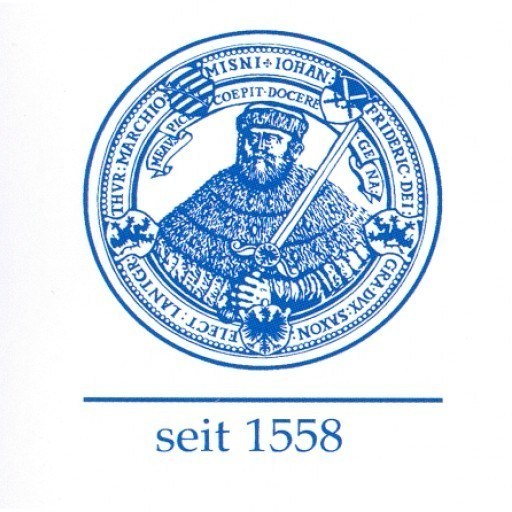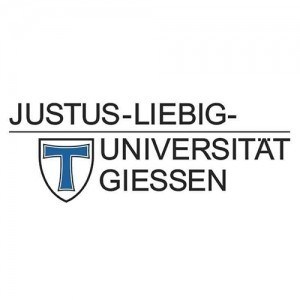Photos of university / #cardiffuni
The MSc in River Catchment Ecology at Cardiff University offers a comprehensive and interdisciplinary approach to understanding the complex ecological processes that shape river systems and their catchments. This programme is designed for students interested in aquatic ecology, environmental management, and conservation, providing them with the knowledge and skills necessary to address pressing ecological challenges facing freshwater environments today. Throughout the course, students will explore a variety of topics including hydrology, geomorphology, water quality, aquatic biodiversity, and the impacts of human activities on river ecosystems. The programme emphasizes both theoretical foundations and practical applications, equipping students with the ability to conduct field research, analyze environmental data, and develop sustainable management strategies. Students will have the opportunity to engage in hands-on experiences through field trips, laboratory work, and research projects, often working alongside experts in the field. The curriculum is designed to foster critical thinking, problem-solving, and a deep understanding of ecological principles in river catchments, preparing graduates for careers in environmental consultancy, conservation organizations, governmental agencies, and academia. With access to Cardiff University’s state-of-the-art facilities and its strong links with environmental agencies, students benefit from an enriching academic environment that emphasizes real-world applications of ecological research. The programme can typically be completed over one year of full-time study, or part-time options may be available. Graduates of the MSc in River Catchment Ecology will be well-equipped to contribute effectively to the management and preservation of freshwater ecosystems, and to undertake further research or study at a doctoral level. This programme reflects Cardiff University’s commitment to sustainability, environmental responsibility, and the advancement of ecological sciences, making it an ideal choice for aspiring environmental professionals seeking to make a positive impact on river environments globally.
River Catchment Ecology at Cardiff University offers an in-depth exploration of freshwater ecosystems, focusing on the ecological processes, biodiversity, and environmental challenges affecting river catchments worldwide. The programme provides students with a comprehensive understanding of how rivers function, the factors influencing their health, and the methods used to assess and conserve aquatic environments. Throughout the course, students will study various components such as hydrology, aquatic plants and animals, water quality, and human impacts on river systems. Emphasis is placed on developing practical skills in ecological surveying, data analysis, and environmental management. The programme combines theoretical coursework with fieldwork, enabling students to gain firsthand experience in river ecology research methodologies. Students will also examine case studies of river catchment management and learn how policy decisions impact ecological sustainability. The curriculum encourages interdisciplinary learning, integrating biological sciences, geology, environmental science, and policy studies to prepare graduates for careers in environmental consultancy, conservation, research, and policy-making. Graduates will be equipped to assess ecological health, design management strategies, and contribute to the sustainable use of freshwater resources. The programme is suitable for students passionate about environmental issues, aquatic ecosystems, and making a positive impact on waterway conservation and management worldwide.
A comprehensive understanding of river catchment ecology requires students to engage with a multidisciplinary curriculum that covers key aspects of freshwater ecosystems, hydrology, ecology, and environmental management. Core modules typically include River Systems and Processes, Aquatic Ecology, and Catchment Management, providing foundational knowledge of river dynamics, ecological interactions, and sustainable management practices. Students are expected to develop practical skills through fieldwork, laboratory analyses, and data interpretation, enabling them to assess water quality, habitat health, and the impacts of human activities on catchments. The programme emphasizes research methods in ecological studies, including statistical analysis and Geographic Information Systems (GIS), essential for effective data collection and spatial analysis in river catchment studies. Ethical considerations and policies related to water resource management are integrated throughout the coursework to prepare students for real-world decision-making. Independent research projects form a significant component, often culminating in a dissertation that investigates specific issues within river catchments, such as pollution sources, habitat restoration strategies, or climate change impacts. Entry requirements generally include a relevant undergraduate degree in ecology, environmental sciences, geography, or a related field, with a strong academic record and analytical skills. The programme aims to produce graduates equipped with both theoretical knowledge and practical expertise, enabling them to pursue careers in environmental consultancy, resource management agencies, research institutions, and governmental bodies responsible for river basin management and ecological conservation. Professional development opportunities, including internships and collaborations with environmental organizations, further enhance employability. Continuous assessment through coursework, presentations, field reports, and examinations ensures comprehensive evaluation of student progress. The curriculum is regularly updated to incorporate advances in ecological research and environmental policy, fostering a dynamic learning environment that prepares students for emerging challenges in river catchment ecology.
The financing of the River Catchment Ecology MSc programme at Cardiff University is primarily composed of tuition fees paid by students, which vary depending on the student's residency status. For UK students, the tuition fee for the academic year is approximately £10,750, while international students are charged around £21,500 per year. These fees are usually paid in installments according to the university's payment schedule. In addition to tuition fees, students are responsible for living costs, which include accommodation, food, transportation, and study materials. Cardiff City offers a range of accommodation options, with average costs ranging from £100 to £200 per week, depending on the type and location of the accommodation. Students may also incur expenses for fieldwork, laboratory sessions, and specialized equipment, which are sometimes subsidized or included in the tuition fees but may also involve additional costs.
Funding opportunities are available through various channels. The university offers scholarships and bursaries for both domestic and international students based on academic merit, financial need, or specific criteria related to the programme. For example, there are postgraduate scholarships such as the Cardiff University Postgraduate Scholarship Scheme, which can cover a portion of tuition fees. External funding sources include government-sponsored loans, research council grants, and private scholarships from environmental organizations. International students are encouraged to explore scholarships offered by their home governments or by international bodies supporting higher education in the UK.
Students also have access to part-time work opportunities on or near campus, which can help offset living expenses. Cardiff University’s career services provide support for finding employment and securing internships relevant to ecology and environmental sciences. Many students also apply for research funding or teaching assistantships, which may partially fund their studies. Moreover, some students finance their education through personal savings or family support.
Overall, the cost of studying in the programme is made manageable through a combination of university financial aid, external scholarships, part-time work, and personal or familial contributions. Prospective students are advised to carefully review the specific financial requirements and available funding options before applying, ensuring they plan their resources accordingly to successfully complete the MSc in River Catchment Ecology at Cardiff University.
River Catchment Ecology at Cardiff University offers an in-depth exploration of freshwater ecosystems, their human impacts, and sustainable management practices. This program is designed to equip students with comprehensive knowledge of the ecological processes governing river catchments, including hydrological cycles, aquatic biology, and landscape interactions. Students will study the effects of pollution, climate change, and land use on river systems, developing skills in ecological assessment, field research, and data analysis. The curriculum combines theoretical coursework with practical fieldwork, allowing students to engage directly with river catchments and apply their learning in real-world contexts. Key modules include Freshwater Ecology, Water Quality Monitoring, Environmental Impact Assessment, and Land-Water Interactions. The program emphasizes interdisciplinary approaches, integrating ecology, hydrology, geography, and environmental science, to foster a holistic understanding of catchment systems. Students have access to state-of-the-art laboratories, GIS technology, and outdoor research facilities. Graduates will be prepared for careers in environmental consultancy, water resource management, conservation agencies, and research institutions. The program also offers opportunities for dissertation research, often in collaboration with local environmental agencies and organizations, providing valuable professional experience. This MSc program is ideal for individuals passionate about protecting freshwater environments and pursuing careers in ecological research, environmental policy, or sustainable catchment management.










